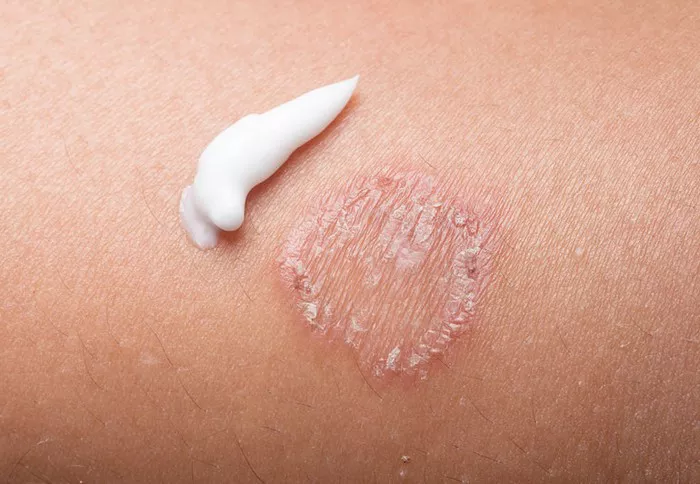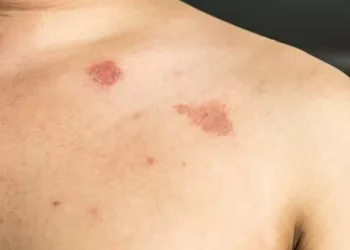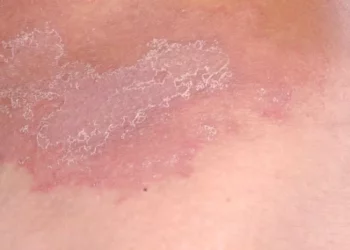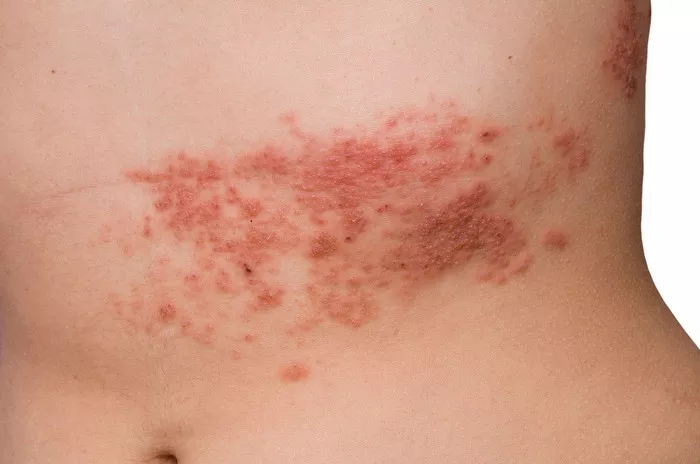Ringworm is a common skin infection that many people associate with actual worms. This can be confusing because, despite its name, ringworm has nothing to do with worms at all. In fact, it’s caused by a type of fungus, not a parasite. Understanding ringworm, its causes, and how it’s treated can help clear up misconceptions and provide helpful information for dealing with this infection.
What is Ringworm?
Ringworm is a fungal infection that affects the skin, hair, or nails. It is also known as dermatophytosis. The infection gets its name because it typically causes a circular or ring-shaped rash on the skin. The rash may appear red, scaly, and itchy, with a clear center. It is often raised around the edges, giving it the “ring” appearance.
Despite the term “worm,” there are no actual worms involved in ringworm. The infection is caused by a group of fungi called dermatophytes. These fungi thrive in warm, moist environments and can infect the outer layers of the skin. They spread easily through direct contact with infected people, animals, or contaminated surfaces.
The Confusion Between Ringworm and Worms
The name “ringworm” likely came about due to the appearance of the infection. As the rash forms in a circular shape, it may resemble a worm or a ring-like structure. However, the fungi that cause ringworm are completely different from worms, and there is no connection between the two. The term “worm” in ringworm is a misnomer that has persisted through history.
It’s important to note that while ringworm does not involve worms, other types of worms, such as intestinal worms or parasitic worms, can cause different health problems. These are not related to ringworm and require different treatments.
Causes of Ringworm
Ringworm is caused by several species of fungi that belong to the dermatophyte group. The most common types of fungi that cause ringworm are:
Trichophyton: This is the most common cause of ringworm in humans and is responsible for many cases of the infection.
Microsporum: This fungus also causes ringworm, often affecting the scalp or hair.
Epidermophyton: This type of fungus primarily infects the skin and nails.
These fungi feed on keratin, a protein found in the outer layer of the skin, hair, and nails. When the fungi come into contact with these areas, they begin to grow and spread, causing the infection.
How Ringworm Spreads
Ringworm is highly contagious. It can spread in several ways:
Direct skin-to-skin contact: If someone with ringworm touches your skin, the infection can spread. This is common in places like gyms, swimming pools, or daycare centers.
Contact with contaminated objects: Fungi that cause ringworm can survive on surfaces such as towels, clothing, combs, and bedding. If these items are shared or come into contact with someone’s skin, they can spread the infection.
Animal contact: Ringworm can also spread from animals to humans. Pets, especially cats and dogs, can carry the fungi and pass them on to their owners.
Soil contamination: Though rare, ringworm can sometimes be contracted from soil that is contaminated with the fungi.
Symptoms of Ringworm
The symptoms of ringworm can vary depending on the location of the infection, but they typically include:
Itchy, red, and scaly rash: This is the most common symptom. The rash often appears in a circular shape with raised, reddish edges.
Bald patches: When ringworm infects the scalp, it can cause hair loss in the affected areas, resulting in bald patches.
Cracking or peeling skin: Ringworm can cause the skin to become cracked, flakey, or peeling. This is especially common on the feet, known as athlete’s foot.
Blisters: In some cases, ringworm may cause small blisters to form around the edges of the rash.
The infection can occur anywhere on the body, but it is most common on the feet, scalp, groin, and nails.
Is Ringworm Dangerous?
While ringworm is uncomfortable and can be annoying, it is usually not dangerous. It is not a serious condition and can be treated effectively with antifungal medications. However, if left untreated, it can spread and cause more widespread symptoms.
In rare cases, ringworm can lead to complications, especially in individuals with weakened immune systems. For example, people with HIV/AIDS or those undergoing chemotherapy may experience more severe cases of ringworm. In such situations, it is important to seek medical attention promptly.
How is Ringworm Diagnosed?
To diagnose ringworm, a doctor will usually examine the skin and look for typical signs of the infection, such as a circular rash. In some cases, the doctor may take a scraping of the affected skin and examine it under a microscope to identify the presence of fungi. A fungal culture may also be performed to confirm the diagnosis.
If the infection affects the scalp or nails, the doctor may take a sample of the hair or nail for testing.
Treatment for Ringworm
Treating ringworm is usually straightforward. Most cases of ringworm can be treated with over-the-counter (OTC) antifungal creams, ointments, or powders. These medications are applied directly to the affected area. Common antifungal treatments include:
- Clotrimazole (Lotrimin)
- Miconazole (Desenex)
- Terbinafine (Lamisil)
For more severe cases, or if the infection affects the scalp or nails, a doctor may prescribe oral antifungal medications such as terbinafine or itraconazole.
It is important to continue using the antifungal medication for the full recommended duration, even if the symptoms start to improve. Stopping treatment too soon can cause the infection to return.
Preventing Ringworm
Since ringworm is highly contagious, it is important to take steps to prevent its spread. Here are some preventive measures:
Practice good hygiene: Wash your hands regularly, especially after touching animals, using public facilities, or coming into contact with potentially contaminated objects.
Avoid sharing personal items: Do not share towels, clothing, or combs with others, especially if they have ringworm or other fungal infections.
Keep your skin clean and dry: Fungi thrive in warm, moist environments. Be sure to dry off thoroughly after swimming or showering, particularly in areas like the feet and groin.
Treat pets: If your pet has ringworm, make sure they are treated by a veterinarian to prevent transmission to humans.
Wear protective footwear in public places: Wearing sandals or flip-flops in public showers, gyms, or swimming pools can help protect your feet from exposure to the fungi.
Misconceptions About Ringworm
There are a few common misconceptions about ringworm that can cause confusion:
Ringworm is not caused by worms: As mentioned, ringworm is a fungal infection, not a parasitic infection. The name comes from the ring-like appearance of the rash, not from any actual worms.
You cannot get ringworm from poor hygiene alone: While poor hygiene can increase the risk of developing ringworm, it can affect anyone, regardless of cleanliness. The fungi that cause ringworm are widespread and can be easily transmitted through contact with infected surfaces or animals.
Ringworm is not a serious medical condition: In most cases, ringworm is a mild infection that can be treated easily with antifungal medications. It is rarely life-threatening, though it can be uncomfortable and embarrassing.
Conclusion
Ringworm is a common and highly contagious fungal infection that can affect anyone. Despite its name, it does not involve any worms. The infection is caused by dermatophytes, fungi that thrive in warm, moist environments. Ringworm can be treated effectively with antifungal medications, and with proper hygiene and preventive measures, it is easy to avoid spreading the infection. If you suspect you have ringworm, it is important to seek treatment to prevent further complications and to avoid passing it on to others.
Related topics:
- Are Ringworms Deadly? A Comprehensive Guide
- How Does Ringworm Start Out Looking?
- Where Does Ringworm Usually Start?



























